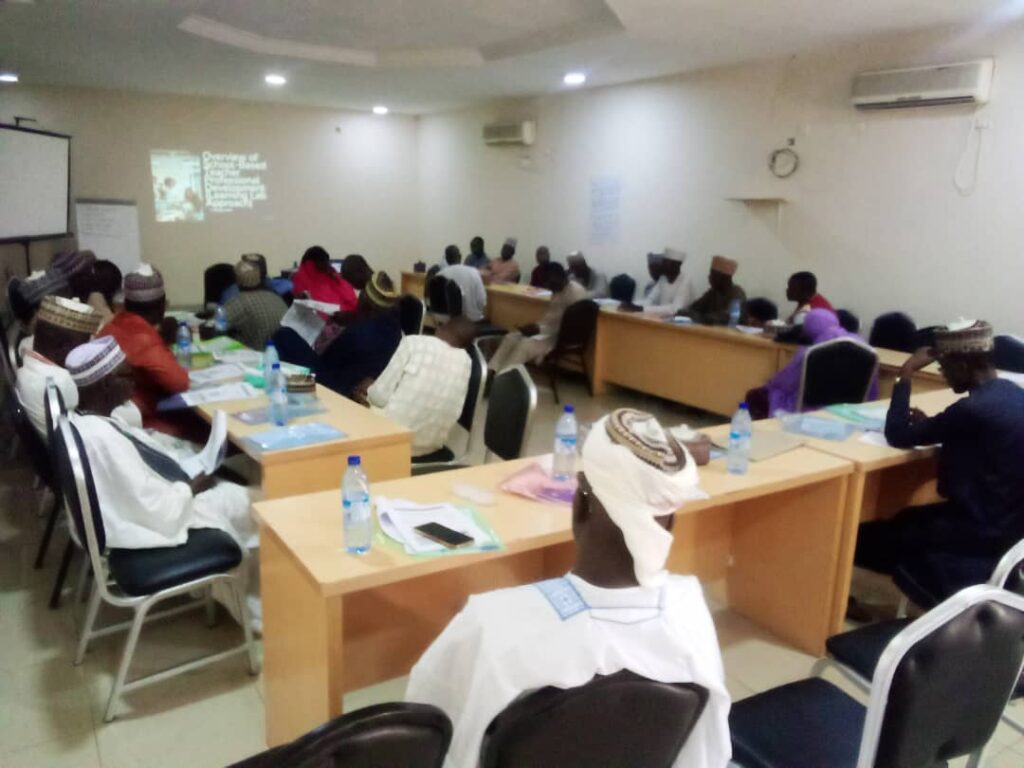From Mika’il Tsoho, Dutse
The Jigawa State Universal Basic Education Board in collaboration with United Nations Children’s Education Fund strategized to address challenges of child education in the state.
Speaking at the four days capacity building on Learning Lab Approach to the leaders, teachers and other stakeholders, Habeeb Saleh the education officer, spoke on technical capacity, UNICEF field office Kano, said the training will equipped the participants with knowledge that can address educational gaps in the state.
He explained that, the Learning Lab approach training is one of the European Union (EU) funded programme Education and Youth Empowerment in North-West Nigeria, aims to increase the number of girls and boys benefitting from safe, inclusive, relevant learning and skills development opportunities in Jigawa, Kano and Sokoto states of Nigeria.
According to him, Learning Lab concept represents an interactive physical and digital learning space which is highly immersive and contextualized within the school eco-system.
“As the principal mechanism for school-based teacher development, the Learning Lab aims to bring together teachers, headteachers, experts, government agencies, development partners and all other stakeholders for developing school-based solutions to improve teaching and learning.
He maintained that, the Learning Lab is thus a space for teachers to try new ideas, to experiment, to apply learning from TPD to classroom lessons, to review and reflect on their classroom practices, and to articulate lessons learnt through practice and enactment.
“The purpose of Learning Lab is to equip the school leaders, teachers, and stakeholders with necessary skills and tools to effectively implement the foundational Literacy and Numeracy as well as Early Childcare (ECC) in their respective schools.
Mr Habeeb added that, the training aims to enhance the capacity of Instructional Leadership Team (ILTs) members to the implementation Learning Lab Approach in teaching foundational Literacy, Numeracy, and Early Childcare (ECC) effectively across the 10 selected schools from Birnin Kudu, Hadejia and Kazaure local governments.
The current challenges facing Jigawa State schools, especially in foundational literacy and numeracy, underscore the need for capacity building at all levels of the education system.
According to him, Data from school assessments indicate that many children are not reaching the desired proficiency in literacy and numeracy, which hinders their long-term academic success adding that, this training will address these gaps by equipping instructional leaders and school support teams with the necessary skills.
According to him, the training also will Strengthen Leadership and Support Structures on School leaders, instructional leadership teams, and support officers at both the state and LGA levels require targeted professional development to effectively coach and mentor teachers in implementing evidence-based practices that lead to improved learning outcomes.
He added that, the training also engaged Community and Stakeholder like SBMCs and PTA members whom play a vital role in fostering a supportive learning environment.
Mr Habeeb then said, engaging these groups through capacity building will promote better school-community partnerships and ensure accountability in monitoring learning outcomes.

